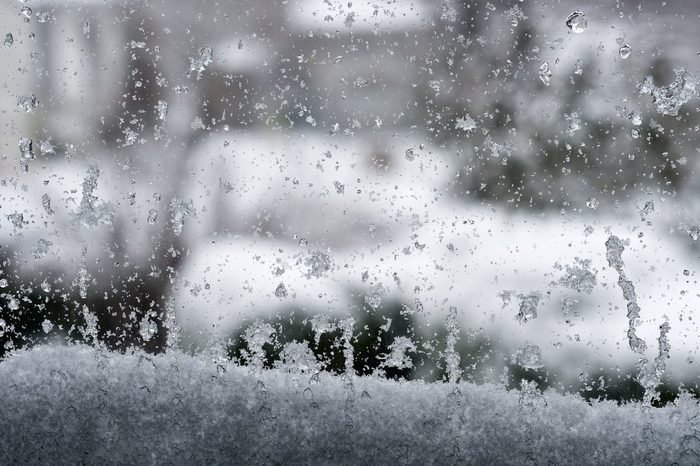
The worst season for skin
Winter wreaks havoc on even the most well-cared-for skin. “Cold, dry weather, coupled with wind, puts a strain on the outer skin layer,” says Joshua Zeichner, MD, director of cosmetic and clinical research in dermatology at Mount Sinai Hospital in New York City. “As natural oils become stripped from the surface of the skin, the barrier becomes disrupted. This leads to loss of hydration, itching, and inflammation.” These are the most common winter skincare mistakes nearly everyone makes during this harsh season.
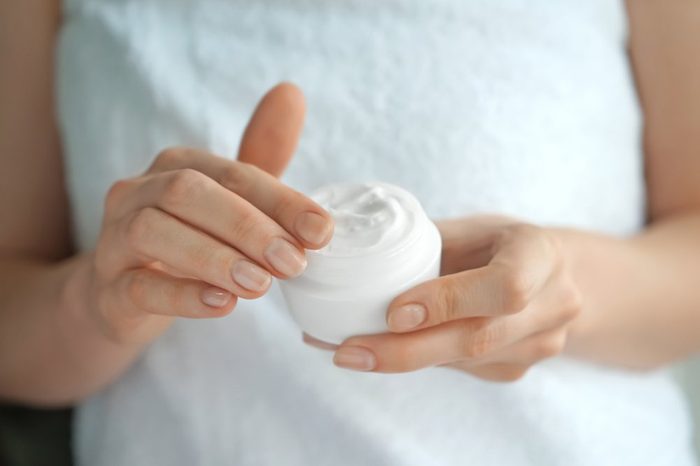
Not switching out your moisturizer
The lightweight moisturizer you wear in warmer seasons is not going to cut it in winter. The American Academy of Dermatology (AAD) recommends an ointment or cream rather than a lotion. Look for an oil—such as olive or jojoba—or shea butter among the ingredients. Other dry skin soothers: lactic acid, urea, hyaluronic acid, dimethicone, glycerin, lanolin, mineral oil, and petrolatum. “Moisturize morning and night,” advises Dr. Zeichner. Find our fave Canadian skin care brands here.
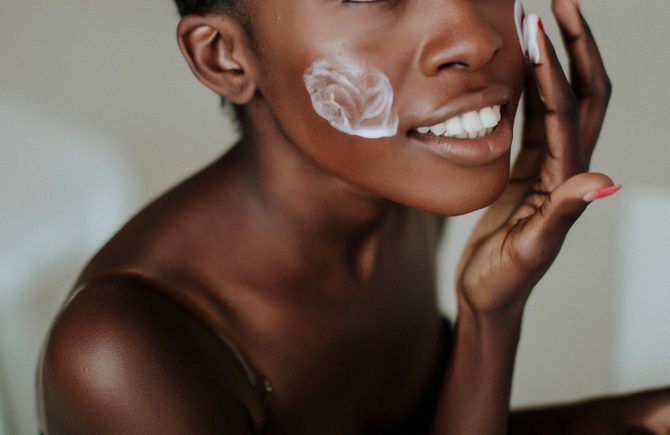
Waiting too long to moisturize
Don’t wait too long after a shower before applying your moisturizer—slather it on right away, while skin is still damp. Moisturizers are most effective when they trap fluids in your skin. So be sure to apply it within a few minutes after toweling off following a shower or bath or washing your face or hands, says the AAD. Here are 12 things dermatologists do to their own skin in winter, and you should too.
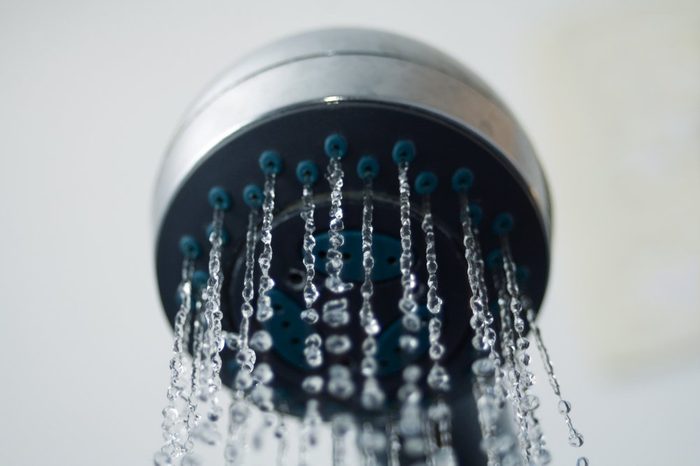
Taking a super-hot shower
It’s tempting to take a really hot shower when it’s cold outside. It just feels so good! But hang on, says Dr. Zeichner: “Hot water can strip the skin of natural oils, contributing to dryness and itching.” He recommends short showers of 10 minutes or less in lukewarm water. “The temperature of the water should be similar to what you would expect in a heated pool in the summer, around 86 degrees Fahrenheit or 30 degrees Celsius.”
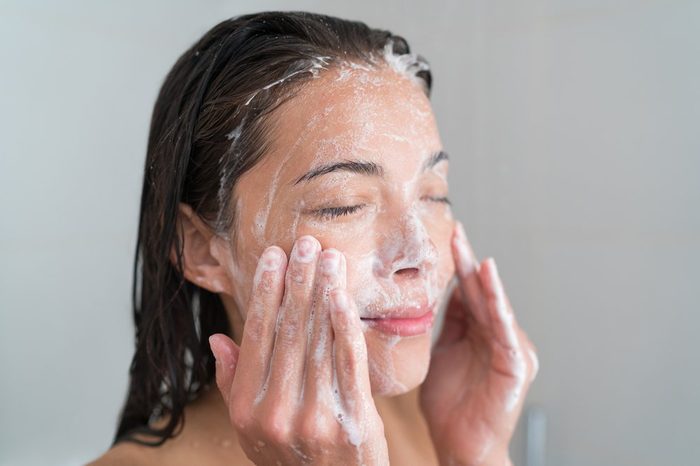
Using the wrong cleanser
“The foaming cleanser you use during the summer to remove excess oil from your skin may cause dryness and irritation in the winter,” says Dr. Zeichner. “Instead, stick to gentle, hydrating cleaners during the colder months.” Avoid products that have an alkaline pH and instead look for those that say they offer moisturizing benefits.
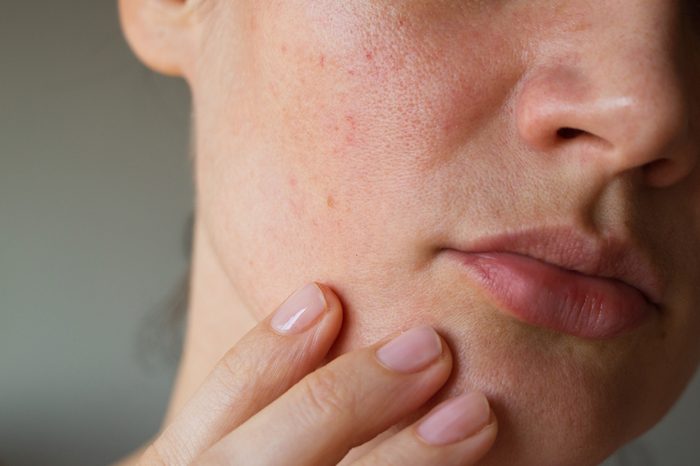
Too much exfoliating
Many people see flakes on their face in the winter and assume they need to exfoliate. Wrong move: “This actually can cause more harm than good, leading to microscopic cracks and inflammation,” says Dr. Zeichner. His advice: “If you see flakes, the first thing you should do is give your skin what it needs—moisturizer. You can exfoliate afterward if you still have flaky skin.”
There’s more: Don’t miss these 12 ways you age faster in winter.
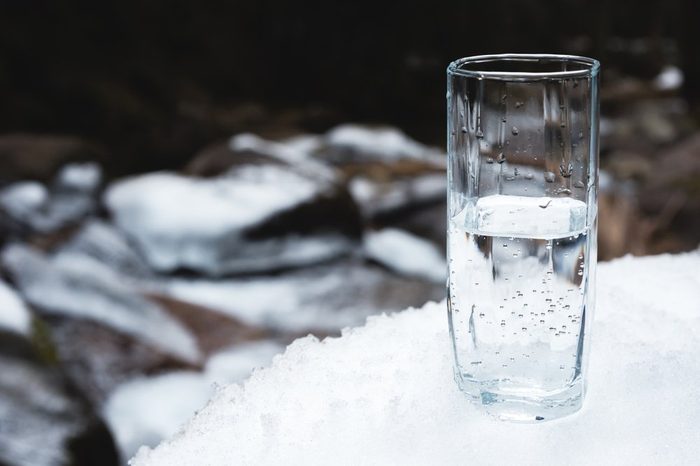
Drinking too little water
We tend to drink more in the summer when we’re hot and thirsty than we do in the winter. “There’s no data proving that drinking a glass of water is necessary to maintain skin hydration or that drinking fewer than eight glasses a day is harmful,” says Dr. Zeichner. “However, if you are extremely dehydrated, that can have an effect on the body overall as well as your skin.” Carry a water bottle with you and sip throughout the day.
Don’t miss the surprising things your skin can reveal about your health.
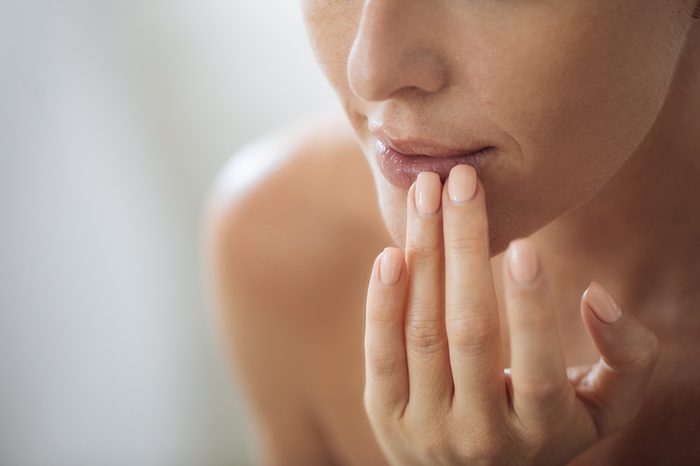
Overlooking your lips
Many people ignore their lips in the winter until they’re irritated and chapped. To head that off, apply a balm or ointment morning and night to protect your lips from the environment. “Avoid lip balms that contain ingredients like camphor, menthol, fragrance, or salicylic acid,” says Dr. Zeichner. “These ingredients oftentimes cause more irritation than good.”
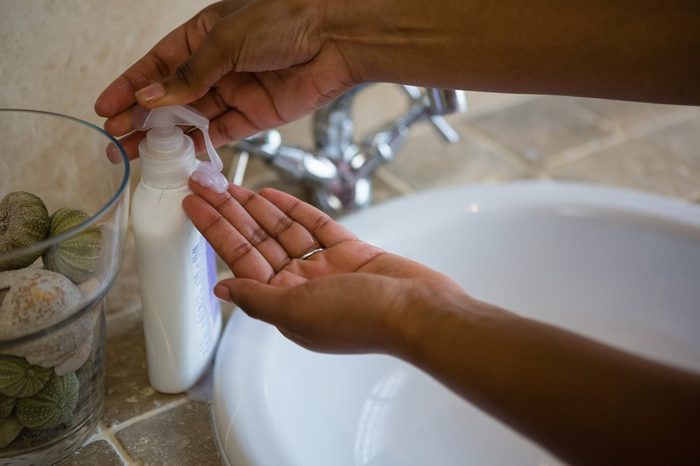
Letting hand washing take a toll
You probably wash your hands more often in winter—it’s a great way to ward off colds and flu. But all that soap and water can take a toll; using alcohol-based hand sanitizers can make the problem worse. Carry a non-greasy hand cream with you wherever you go so you can moisturize hands after every washing.
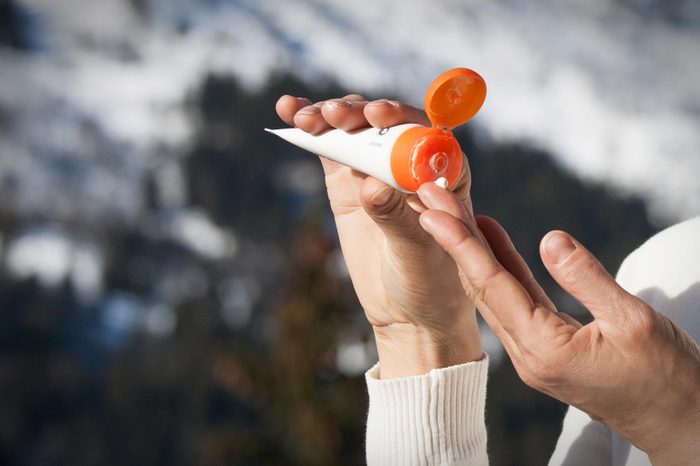
Skipping the sunscreen
It’s a myth that your skin is safer from the sun in winter. “UV light may not be as strong during the winter as it is during the summer, but it still exerts a harmful effect,” says Dr. Zeichner. If you enjoy winter sports, take extra care: “UV light reflects off snow, which can lead to sunburning even while you’re skiing.” Look for a sunscreen with at least SPF 30 and the words “broad-spectrum protection” on the bottle, to ensure it protects against both UVB and UVA rays.
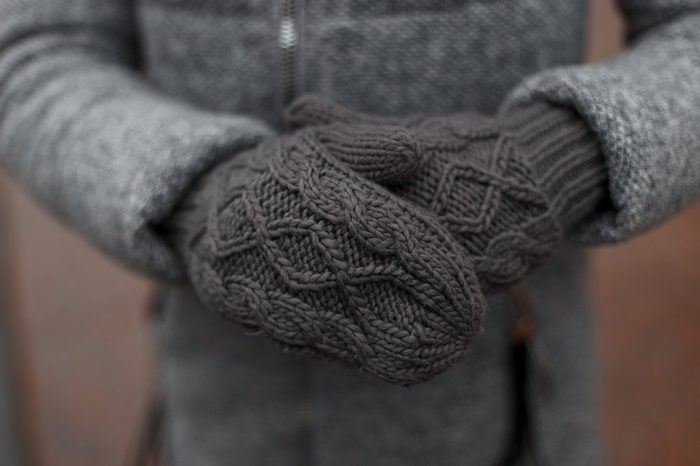
Exposing hands to the elements
A simple step can help head off raw, irritated hands—wearing gloves. Also, make sure to use dish-washing gloves before you immerse your hands in water or do any cleaning that would bring your hands into contact with chemicals.
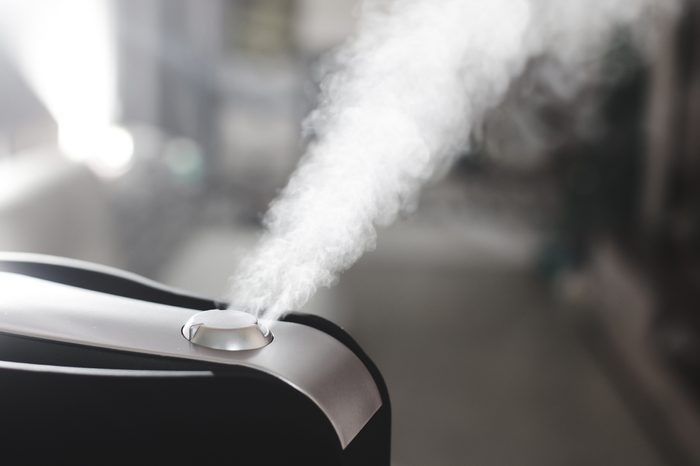
Not running a humidifier
A humidifier adds moisture to the air, which is just what you need in the cold, dry months, says Dr. Zeichner. He recommends running one at night while you sleep. “Stick to cool mist humidifiers as they’re safer than hot steam options,” he says. Running a humidifier can also help fight dry hair.
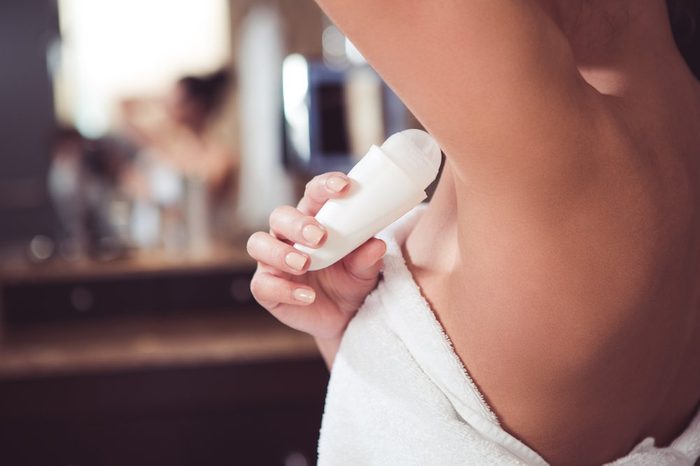
Using scented products
Scented skincare products can irritate already dry skin. If your skin is feeling parched and itchy, replace the deodorants, soaps, and any products that contain fragrance with unscented products; also, beware of any products that contain alcohol, retinoids, or alpha-hydroxy acid (AHA). All these ingredients can strip skin of its natural oils.
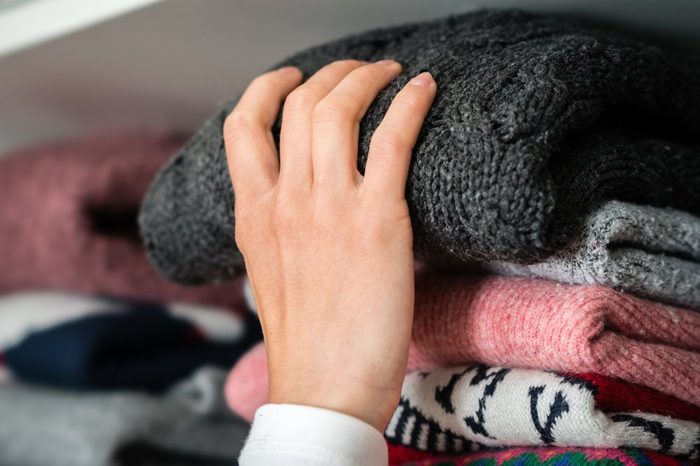
Wearing clothes that chafe
It’s sweater weather, but clothes made of wool and other rough materials can irritate skin. Choose softer materials when you can—and if wool is a must, wear cotton or silk under it. Take care with the laundry detergent that you use to wash those clothes, as it can irritate too. Use a brand labeled “hypoallergenic,” especially in winter.
Next, check out these 15 weird things that happen to your body in winter.
